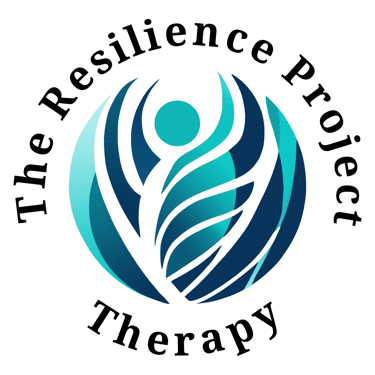Learning to Tolerate Uncertainty
Navigating the unknown with confidence.
Christian Gray Hering
10/16/20233 min read


Life is full of uncertainty. We can never know for sure what the future holds or predict everything that might happen. For many people, this lack of control and predictability leads to significant anxiety. Intolerance of uncertainty has been linked to several anxiety disorders, including generalized anxiety disorder, social anxiety, panic disorder and OCD.
As a therapist, I often work with clients who struggle with uncertainty. They want to plan for every possible outcome and worry constantly about the "what-ifs." While it's natural to dislike uncertainty, having an excessive intolerance can negatively impact your life. My goal is to help clients develop a healthier relationship with the unknown.
Here are some of the tools I recommend:
Practice mindfulness - Mindfulness teaches us to stay grounded in the present moment instead of getting caught up in fear of the future. Set aside time each day for meditation or breathing exercises. Notice any thoughts about the future and gently bring your focus back to the here and now. Staying present will decrease anxiety.
Challenge catastrophic thinking - Intolerance of uncertainty often goes hand in hand with cognitive distortions like catastrophizing - when we assume the worst case scenario. When you notice your mind jumping to "what-if" thoughts, pause and rationally evaluate if they are likely to happen. Replace exaggerated thinking with more realistic outcomes.
Limit reassurance seeking - People with high uncertainty tolerance often excessively seek reassurance from others. However, this provides only temporary relief. Instead, work on dealing with uncertainty internally by reminding yourself that certain worry and doubt is normal.
Welcome and accept emotions - Anxiety about uncertainty is unavoidable. Don't try to fight the feeling. Acknowledge anxiety when it arises but don't let it dictate your actions. Avoidance will only strengthen the anxiety. With regular practice, these emotions will decrease.
Take small risks - One of the most effective ways to overcome uncertainty anxiety is through gradual exposure. Start by identifying situations that cause mild to moderate anxiety related to unpredictability. These could include not planning every detail of a vacation, trying a new restaurant or meeting new people. Slowly put yourself in these situations and allow yourself to tolerate the uncertainty. Face the fear and your anxiety will lessen over time.
Trust yourself - Boost confidence in your own ability to handle uncertainty. Look back at previous situations where things were unpredictable but still turned out okay. Recognize this as evidence that you can cope with uncertainty. Even if the worst case happens, you likely have resources to deal with it.
Let go of perfectionism - The need for certainty is often driven by perfectionistic tendencies and the desire to do everything "right." Challenging rigid, perfectionistic thinking can reduce anxiety. Accept that in an uncertain world, things will not always go exactly as planned. Focus on doing your best while realizing it's impossible to control everything.
Appreciate positives - There are always positives to any unknown situation. You just have to look for them. Spend time identifying potential upsides to uncertainty - for example, unexpected life changes can lead to growth. Reframing uncertainty this way makes it less threatening.
Trusting in your resilience - At the end of the day, know that you can handle whatever life throws your way. Look back at past challenges you have overcome. Uncertainty is part of life, and with regular practice you can develop the skills to tolerate it in a healthier way. Reach out for professional help if you need support.
Sources:
Anxiety and Depression Association of America (ADAA): Tolerating Uncertainty: https://www.sciencedirect.com/science/article/abs/pii/S0887618517304796). This page provides a comprehensive overview of uncertainty intolerance, including its definition, symptoms, and causes. It also offers tips for managing uncertainty intolerance and coping with anxiety.
HelpGuide.org: How to Tolerate Uncertainty: https://www.helpguide.org/articles/anxiety/dealing-with-uncertainty.htm). This article provides practical advice for learning to tolerate uncertainty, including how to challenge negative thoughts, practice mindfulness, and accept your emotions.
Verywell Mind: How to Tolerate Uncertainty: https://www.sfbaycbt.com/blog/tolerating-uncertainty-7-strategies-for-managing-worry-and-staying-grounded-in-the-face-of-uncertainty). This article explains how uncertainty intolerance can contribute to anxiety and offers strategies for coping with it, such as exposure therapy, cognitive restructuring, and acceptance and commitment therapy (ACT).
Psychology Today: How to Tolerate Uncertainty: https://www.psychologytoday.com/us/blog/crazy-life/202005/6-ways-increase-uncertainty-tolerance). This article discusses the importance of uncertainty tolerance in mental health and provides tips for developing it, such as practicing mindfulness, challenging negative thoughts, and taking small risks.
The Gottman Institute: How to Deal with Uncertainty in Your Relationship: https://www.theknot.com/content/dealing-with-uncertainty). This article provides advice for couples on how to deal with uncertainty in their relationship, such as communicating openly, trusting each other, and focusing on the present moment.
Uncertainty Workbook: Uncertainty Workbook: https://www.childdevelop.ca/sites/default/files/files/Tolerance_for_Uncertainty_Covid-19.pdf This website provides a free workbook with exercises and activities for developing uncertainty tolerance.
The Anxiety and Stress Disorder Institute of Maryland: Uncertainty Tolerance Training: https://pubmed.ncbi.nlm.nih.gov/34866725/). This website offers a variety of resources for uncertainty tolerance training, including articles, videos, and worksheets.
The Center for Clinical Interventions: Uncertainty Tolerance: https://www.cci.health.wa.gov.au/-/media/CCI/Consumer-Modules/What-Me-Worry/What-Me-Worry---09---Accepting-Uncertainty.pdf). This website provides a number of resources on uncertainty tolerance, including articles, worksheets, and self-assessments.
The Resilience Project Therapy
Mailing
P.O. Box 832182
Richardson, TX 75083
Contacts








